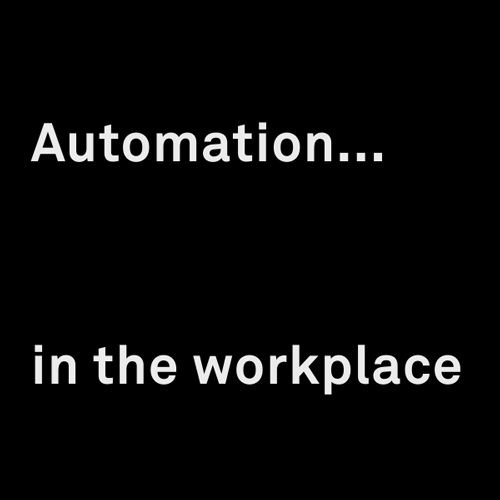
Colin Hunter once spent fifteen minutes waiting for a custom tailoring appointment at a well-known department store. By the time an associate did get around to talking to him, it was instantly clear that he was just one of many customers–the associate didn’t take note of his preferences, and had very little to offer in terms of feedback or styling suggestions. “If a customer comes into Alton Lane with the type of department store experience that I had, not only will we win them over in terms of the quality of the suiting, but we will quickly sell them on comfort and personalization,” Hunter says.
That’s because Alton Lane has built their business entirely around a customer base that values experience. Since its inception in 2009, Alton Lane has brought a new standard to men’s retail–even integrating advanced technology in order to add an additional level of customization for their clients, which include everyone from Wall Street first-years to professional athletes and Fortune 500 CEOs.
Hunter says that “going digital” is where Alton Lane has achieved some of its biggest successes, something that many competitors in the retail business have not taken advantage of. “Simply having a website is already outdated,” Hunter says. “We are constantly updating and evolving as the consumer technology landscape shifts. Every investment that we make is done with our customer in mind.”
In Alton Lane’s case, that has meant implementing tech solutions that drive down both production costs and costs for the customer, including the cost of time. One of the company’s brand pillars is making the bespoke experience as convenient and accessible as possible, even to time-strapped customers who can’t physically visit their showroom locations. A newly implemented service enables customers to place orders by text, a practice that Hunter jokes has resulted in some interesting late-night weekend requests. Alton Lane customers can also track the status of their order—from creation to delivery—much like the Domino’s “Pizza Tracker” and Postmates’ order delivery monitoring services. “By putting the power in our customers’ hands, our service call volume has dropped by 30 percent,” Hunter says.
Another high-tech component of the Alton Lane experience involves 3D body-scanning technology that enables showroom managers to take over 300 measurements in under 30 seconds–ensuring that every customer receives the best fit possible. In addition to having scanners installed in all thirteen of their showroom locations around the United States, the technology is also integrated into Alton Lane’s “mobile showroom”: a branded, traveling airstream that the company sends to corporate businesses and individual customers around the country. “We have satellite hooked up to the outside of the mobile showroom so you can still watch NFL Sunday Ticket and have a few drinks while getting measured. We’re really trying to reimagine shopping for guys in different ways.”
In addition to their extensive consumer-facing technologies, Alton Lane has implemented a number of solutions behind the scenes that are designed to improve efficiency and ensure that customers receive their garments as quickly and accurately as possible. Using propriety software installed on iPads, the company manages inventory directly with fabric partners around the world. The software is also synced to their factories, allowing customer orders to go into production within minutes of being placed.
In Alton Lane’s case, reimaginging the traditional shopping experience extends beyond just technology, and also involves working to create physical showrooms that are aesthetically on-brand while also catering to each customers’ unique style and preferences. This is not a simple task, because Alton Lane’s customer base is vast—they have clients ranging from twenty-year-old college graduates purchasing their first suits, to Oscar-winning directors shopping at a significantly higher price point. “In an age where you can customize the interior of a BMW online or build your own pair of Nikes, people want to be able to have things their way,” Hunter says. “We just really stay focused on delivering that same level of personalization.”
To ensure that every customer is comfortable in their space, the company offers a selection of premium fabrics—over 3,000 in total— across all price points. There are a number of additional customizable aspects of their experience, from the music that is playing to the beverages being served. This level of customization has proven to be a tremendous success already: “Some of our showrooms are seeing six-to-eight times the national average in terms of sales-per-square foot, yet our cost-per-square foot is usually five-to-ten cents on the dollar of what other luxury companies are paying,” Hunter says.
When Hunter speaks of Alton Lane’s edge over its bigger-branded competitors, he emphasizes the company’s next-level customization, which enables them to “grow” with their clientele. “We have built our business so that customers never have to graduate from our brand,” Hunter says. “Investing in experience drives a deeper customer relationship. Relationships drive loyalty. Loyalty drives lifetime value. That’s what everyone’s trying to go after, but big brands are sometimes too slow to adapt.”
Hunter is also excited about Alton Lane’s recent partnership with a German fabric manufacturer that produces for Saville Rowe in London. “We’re now able to offer true, top-of-the line quality, fully handmade, bespoke garments that other accessible-priced custom providers are not able to offer,” Hunter says.
The company plans to eventually expand to 300 stores in the United States and more elsewhere. They’ve tested denim and cashmere sweaters and plan on introducing custom shoes in 2019. Expansion aside, Hunter says the real key to Alton Lane’s success and future-planning starts and ends with its customers. “Real value in retail is getting back to authentic business principles and really treating your customer more like a person than a transaction.”
Photo courtesy of Alton Lane

